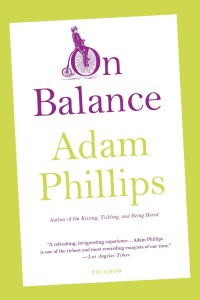The definition of dramatic is 'exciting or filled with emotion or energy'.
Drama can drain, and yet can also energize, as each of these words has within its very gamut the extremes......be it anticipation, fear, joy, sorrow, love, hate, positive, negative and so on .
However, in life (as against Shakespeare ) drama is a pretty nuanced word, or rather, let me say it, an almost judgmental word. Like it's an antithesis to peace, contentment, equanimity and the like.
I personally believe it's about living the entire gamut of the emotion, letting in free flow. So, when I chanced upon this article, I just had to put it here :)
Excerpt of "Necessary Excesses of Life' by Maria Popova, a review of 'On Balance' by Adam Phillips
"Something is always born of excess,"Anaïs Nin wrote in her diary in 1945 as she contemplated the value of emotional excess, And yet our compulsive pursuit of balance is predicated on eradicating "excess," pitting it as a counterpoint rather than a complement to equilibrium and inner wholeness.
That paradoxical relationship is what the celebrated psychoanalyst and writer Adam Phillips examines in On Balance

"Phillips writes: The people we fall in love with we find singularly captivating, as are any of the people (or ideas) that inspire us, for better or for worse. It is the singularly captivating that tends to make us lose our balance, the idea of balance itself which can unbalance us.
These unbalancing acts, Phillips argues, are a vital and indicative part of our aliveness:
We should not, perhaps, underestimate our wish to lose our balance, even though it’s often easier to get up than to fall over. Indeed, the sign that something does matter to us is that we lose our steadiness.
Phillips considers the necessary excess of optimism and why an artificial balance is sometimes more dangerous than surrendering to such "singularly captivating" loss of steadiness: "Balancing acts are entertaining because they are risky, but there are situations in which it is more dangerous to keep your balance than to lose it."
One of the things people most frequently say in psychoanalysis is, ‘Perhaps I am overreacting, but ...... ’; and one of the commonest complaints today is about feeling too much or feeling too little. I want to suggest that we are simply too much for ourselves, but that this too-muchness is telling us something important. In other words, we sometimes call ourselves and other people excessive as a way of invalidating or tempering the truths we tell ourselves or that other people tell us. It is impossible to overreact.
Phillips looks at how our early childhood – those "years of intense feeling" – shapes our aversion to excess and gives rise to our compulsive quest for composure and control with which to disguise our deep inner shame of being seen as "overreacting":
Nin, it turns out, was right after all – great excess is necessary for great works of art, and what greater an art than that of human relationships?
Phillips captures this necessary too-muchness beautifully: We are too much for ourselves because there is far more to us – we feel more – than we can manage.
Phillips captures this necessary too-muchness beautifully: We are too much for ourselves because there is far more to us – we feel more – than we can manage.
Indeed, grief, rather like sexuality, reminds us just how much we are too much for ourselves, how intense our loves and longings really are.
The whole idea of ourselves as excessive exposes how determined we are to have the wrong picture of what we are like, of how fanatically ignorant we are about ourselves."
So, do we want to know ourselves that little better? Explore those excesses? Experience them? What I read somewhere comes to mind.......It's like driving a car that's capable of being driven on 8 cylinders, on 4. Worth a thought, huh?
So, do we want to know ourselves that little better? Explore those excesses? Experience them? What I read somewhere comes to mind.......It's like driving a car that's capable of being driven on 8 cylinders, on 4. Worth a thought, huh?
No comments:
Post a Comment